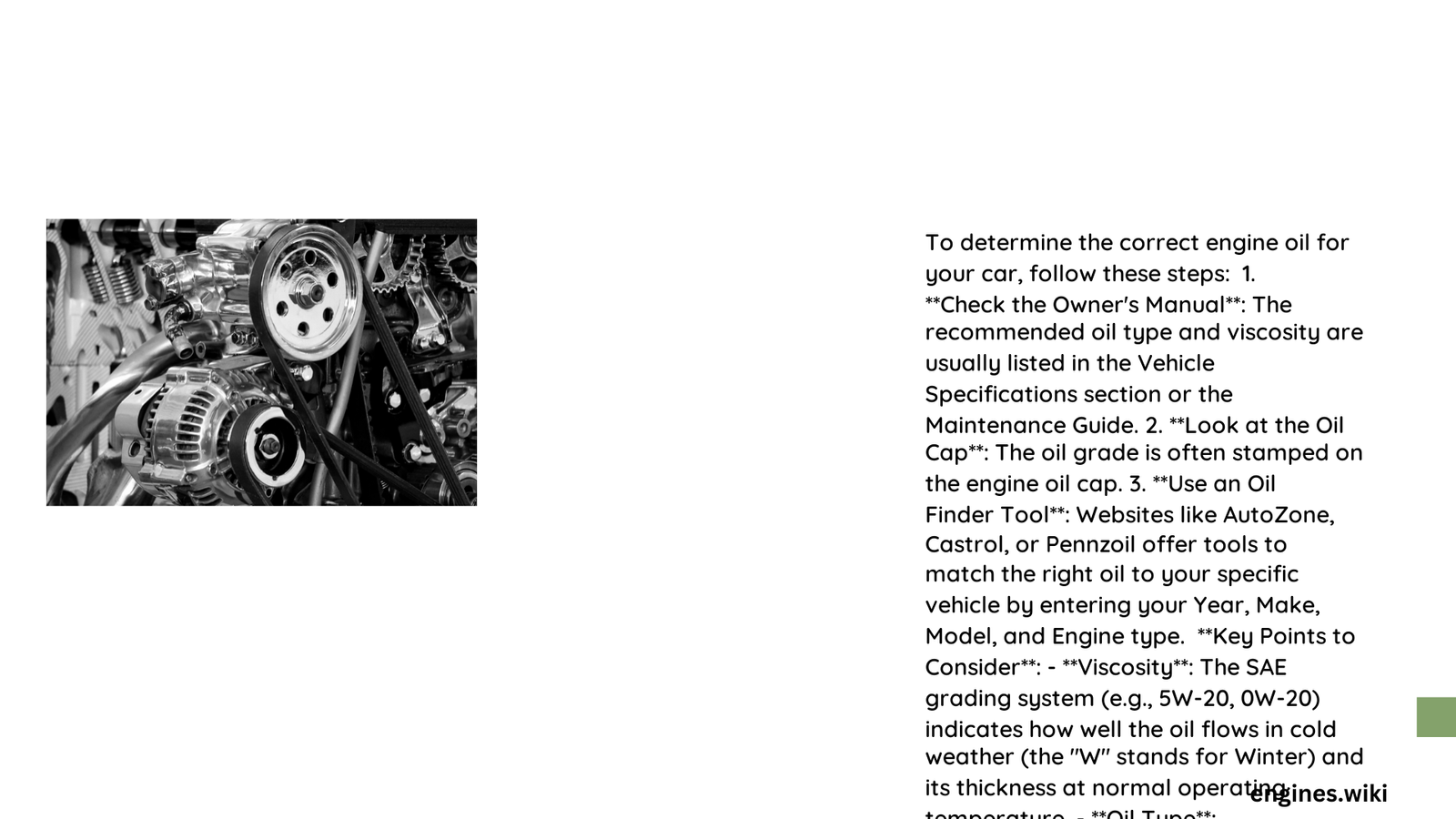Selecting the right engine oil is crucial for maintaining your vehicle’s performance, protecting its internal components, and ensuring long-term reliability. Modern automotive engines demand specific oil types that vary based on make, model, year, and technological advancements. Understanding the nuanced requirements of your car’s engine oil can prevent premature wear, improve fuel efficiency, and safeguard your vehicle’s critical mechanical systems.
What Determines the Right Engine Oil for My Vehicle?
How Do I Identify the Correct Oil Viscosity?
Engine oil viscosity is the primary factor in selecting the right lubricant. Different vehicles require specific viscosity grades that match their engineering specifications:
| Viscosity Grade | Typical Vehicle Applications |
|---|---|
| 0W-16 | Newer hybrid and fuel-efficient vehicles |
| 0W-20 | Modern compact and mid-size cars |
| 5W-20 | Many Japanese and American passenger vehicles |
| 5W-30 | Older and larger engine configurations |
| 10W-30 | Trucks and SUVs in moderate climates |
What Specifications Should I Look for in Engine Oil?
Key specifications ensure your engine receives optimal protection:
- API SP Rating: Latest American Petroleum Institute certification
- ILSAC GF-6A/GF-6B: International Lubricant Standardization and Approval Committee standards
- Synthetic or Synthetic Blend: Recommended for modern engine technologies
Where Can I Find My Vehicle’s Specific Oil Requirements?
Locate your exact oil specifications through:
- Vehicle owner’s manual
- Manufacturer’s website
- Inside driver’s side door jamb sticker
- Professional automotive service consultation
What Brands Offer Reliable Engine Oils?
Top-tier engine oil manufacturers include:
- Mobil 1: Advanced synthetic formulations
- Castrol: Comprehensive range of viscosities
- Valvoline: High-performance synthetic blends
- Pennzoil: Advanced protection technologies
How Do Modern Engine Technologies Impact Oil Selection?
Contemporary automotive technologies demand specialized lubricants:
- Turbocharged Engines: Require oils with enhanced heat resistance
- Start-Stop Systems: Need oils with superior low-temperature performance
- Direct Injection Engines: Demand oils protecting against deposit formation
What Risks Exist from Using Incorrect Engine Oil?
Potential consequences of inappropriate oil selection:
- Accelerated engine wear
- Reduced fuel efficiency
- Increased emissions
- Potential warranty invalidation
- Higher maintenance costs
Can I Mix Different Engine Oil Types?
Critical Recommendations:
– Avoid mixing different viscosity grades
– Do not combine synthetic and conventional oils
– Always follow manufacturer specifications
How Often Should I Change My Engine Oil?
Recommended intervals:
- Synthetic Oil: 7,500 – 15,000 miles
- Conventional Oil: 3,000 – 5,000 miles
- Manufacturer’s Specific Recommendation: Always primary guidance
Pro Tips for Engine Oil Selection

- Check oil level monthly
- Monitor oil condition between changes
- Use high-quality oil filters
- Consider driving conditions when selecting oil
Final Recommendations
Always prioritize your vehicle manufacturer’s specific recommendations over generic advice. When in doubt, consult a professional automotive technician who can provide personalized guidance based on your vehicle’s unique requirements.
Maintenance Checklist
- ✓ Verify correct viscosity
- ✓ Match API and ILSAC specifications
- ✓ Consider vehicle age and technology
- ✓ Select reputable brand
- ✓ Follow recommended change intervals
